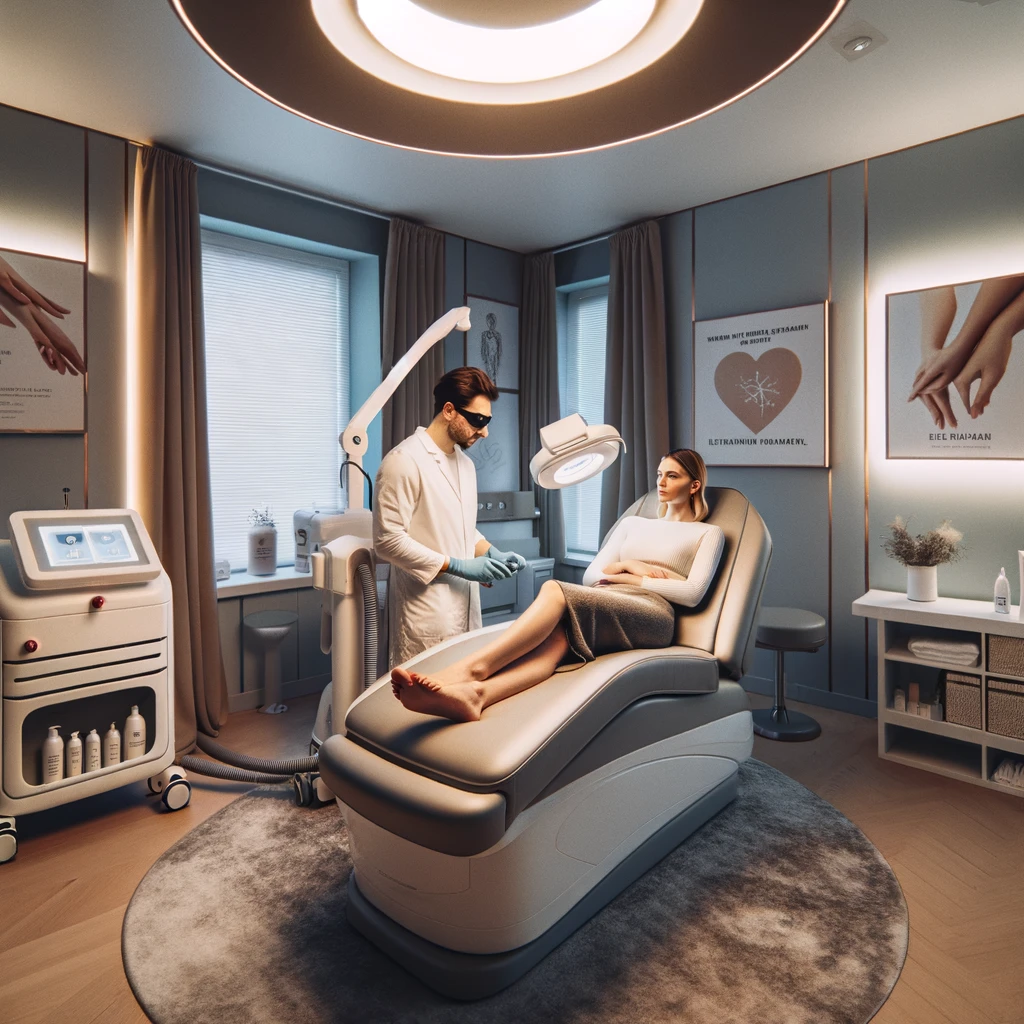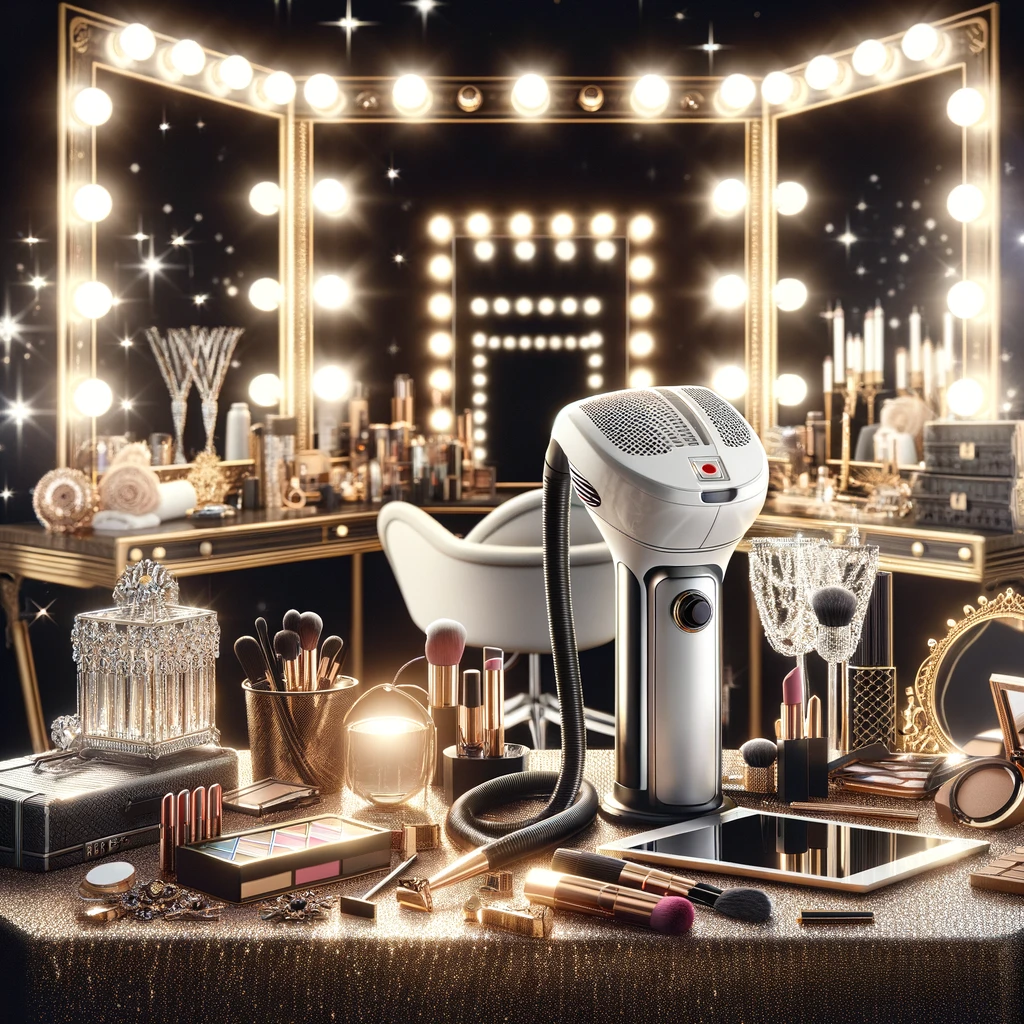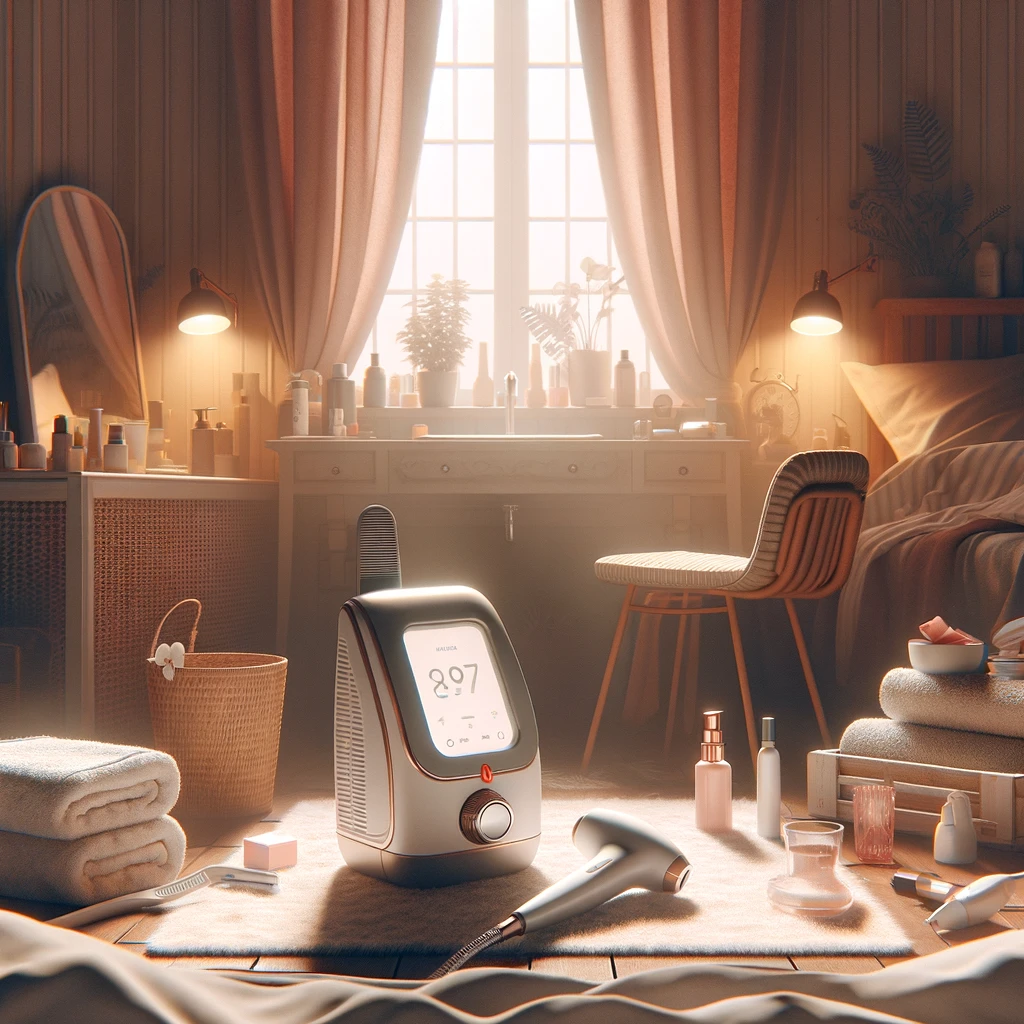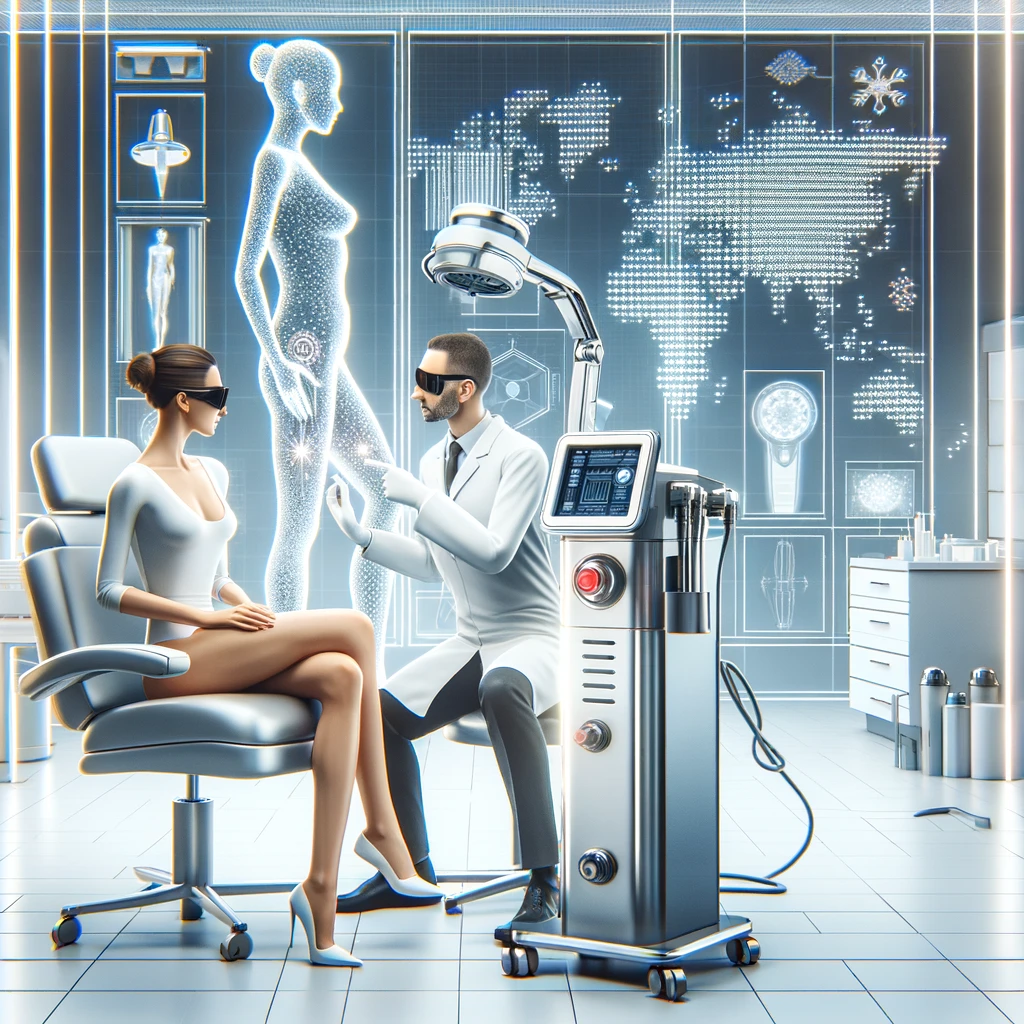Sarah, a woman in her thirties, had always wanted to banish unwanted body hair. The constant cycles of shaving, plucking, and waxing left her frustrated and her skin irritated. When she heard about laser hair removal and its promise of smoother, hair-free skin, she was intrigued. Yet, there was one nagging question holding her back: does it hurt?
Like Sarah, many people are curious about laser hair removal and its potential benefits. But the topic of pain and discomfort can be a major factor in decision-making. This article aims to demystify the experience of laser hair removal, addressing common pain-related concerns and offering tips to manage any discomfort.
The Science of Laser Hair Removal: What Happens During Treatment
To understand the sensations associated with laser hair removal, let’s first grasp what the procedure actually involves. Laser hair removal works by targeting the dark pigment (melanin) in hair follicles. A laser device emits a concentrated beam of light, which is absorbed by the melanin. This light energy is transformed into heat, which damages the hair follicle and impairs its ability to produce new hair.
The Sensation: What Does It Feel Like?
While everyone’s pain tolerance is unique, most people describe the feeling of laser hair removal as a quick, hot “snap” or “prick” on the skin – similar to being flicked with a rubber band. Some compare it to a mild sunburn. The sensation intensity can vary depending on a few factors:
- Treatment Area: More sensitive areas, such as the bikini line or face, may be more likely to feel a sharper sensation than thicker-skinned areas like the legs.
- Hair Density and Color: Thicker, darker hair tends to absorb more heat, which can slightly intensify the sensation.
- Laser Device: The type of laser used can influence the sensation. Recent technological advancements have made laser hair removal less painful than older, less sophisticated devices.
- Individual Pain Tolerance: Everyone experiences pain differently. Some people might find the procedure relatively painless, while others might experience more discomfort.
Is It Tolerable?
The good news is that the discomfort associated with laser hair removal is generally brief and manageable for most individuals. While not completely painless, it’s often considered less unpleasant compared to traditional hair removal methods like waxing or epilating.
Strategies for Minimizing Discomfort
If you’re still feeling uneasy about potential pain, the following strategies can help make your laser hair removal experience more comfortable:
- Numbing Creams: Topical numbing creams containing lidocaine can be applied to the treatment area an hour before your session to reduce sensitivity.
- Over-the-Counter Pain Relief: Taking an over-the-counter pain relief medication like ibuprofen or acetaminophen before your appointment can help lessen potential discomfort.
- Ice Packs Applying an ice pack to the treated area before and after the procedure can help reduce any lingering heat sensation and soothe the skin.
- Cooling Systems: Many modern laser devices are equipped with built-in cooling mechanisms. This may be a spray, chilled air, or a cooling gel applied to the skin to keep the targeted area cool and minimize discomfort.
- Mindfulness Techniques Relaxation techniques like deep breathing or meditation can help you focus your mind and cope with minimal discomfort.
- Communication is Key: Open communication with your laser technician is crucial. Don’t hesitate to tell them if you’re experiencing significant discomfort – they may be able to adjust the settings or provide you with breaks.
Debunking Common Myths about Laser Hair Removal Pain
- Myth 1: Laser hair removal is excruciatingly painful. Reality: While not entirely painless, most people can tolerate the sensation. Advancements in technology have significantly reduced discomfort associated with the procedure.
- Myth 2: The pain gets worse with subsequent treatments Reality: The opposite can actually be true. As hair growth weakens after each treatment, there is less hair for the laser to target, typically lessening any discomfort over time.









Leave a comment